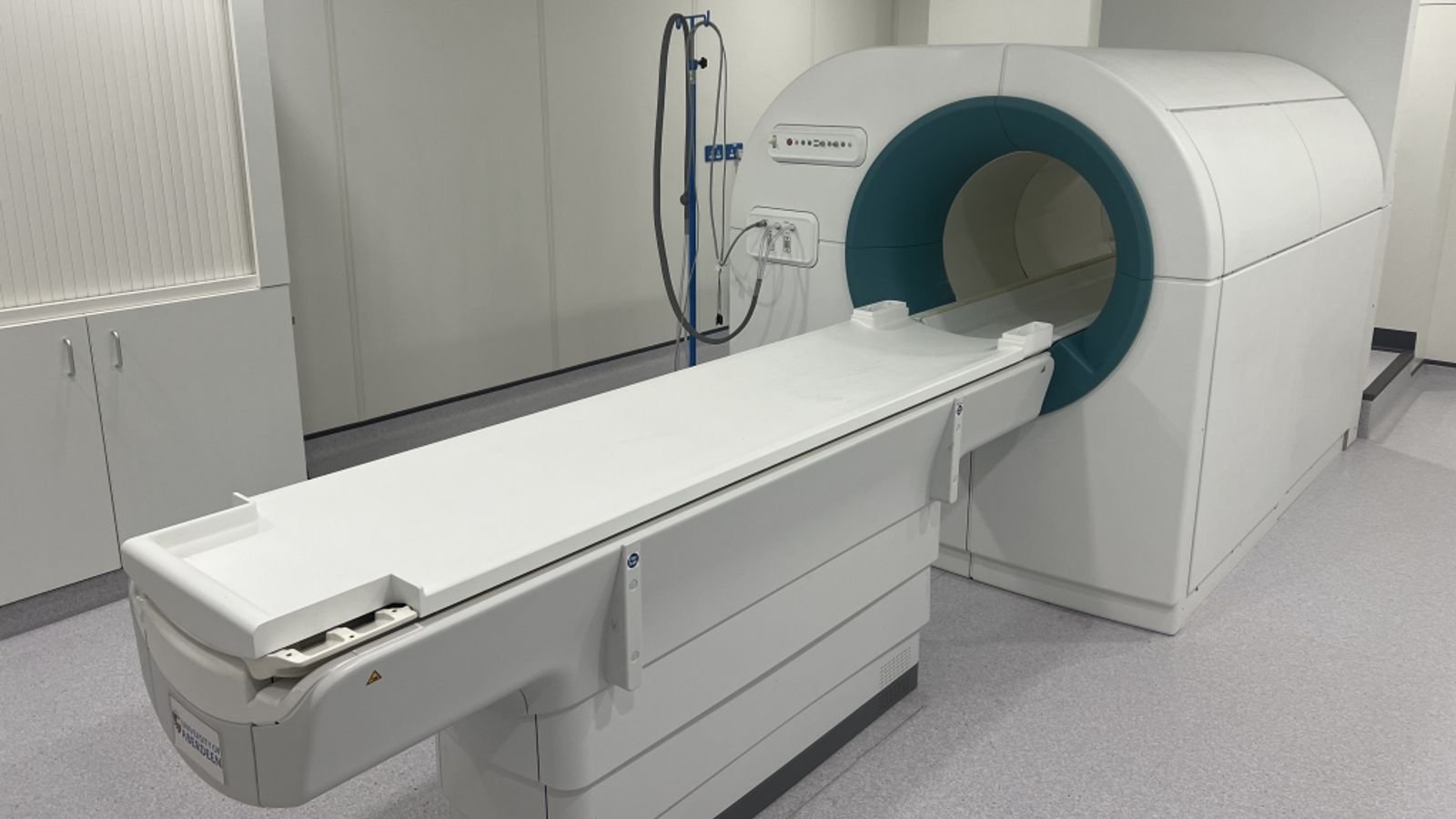The University of Aberdeen and NHS Grampian have received £350,000 in funding from the Scottish government to develop a new scanner derived from MRI technology. This innovative scanner aims to track the spread of brain cancer and enhance treatment for patients. Glioblastoma, the most common and aggressive type of brain tumor, affects over 3,000 new patients in the UK annually, with a high mortality rate despite current treatment options.
The technology, known as Field Cycling Imaging (FCI), is a specialized low-field MRI scan that has shown promise in detecting tumors in breast tissue and brain damage in stroke patients. The FCI scanner, developed in Aberdeen, is the only one of its kind used on patients worldwide. By operating at low and ultra-low magnetic fields, the FCI scanner can provide detailed insights into how diseases affect organs, offering new possibilities for diagnosis and treatment.
One of the key advantages of FCI is its ability to vary the strength of the magnetic field during a scan, allowing for more detailed information to be extracted from the tissues without the need for injecting dye into the body. This non-invasive approach reduces the risk of kidney damage and allergic reactions in patients. The researchers involved in the project plan to use FCI to scan glioblastoma patients undergoing chemotherapy after surgery and chemoradiotherapy.
The goal of the research is to differentiate between tumor growth and «pseudo-progression,» a condition that mimics tumor growth but is not cancerous tissue. This distinction is crucial for improving care and quality of life for patients. Professor Anne Kiltie, leading the study, emphasized the importance of early detection of true tumor progression to guide the selection of appropriate chemotherapy and prevent premature discontinuation of effective treatment.
The study aims to enhance the quality, effectiveness, and cost-effectiveness of healthcare for glioblastoma patients in Scotland and beyond. By developing a reliable method to identify progressive disease, the research team hopes to pave the way for more precise evaluation of emerging treatment options and ultimately improve outcomes for patients. This pioneering work from the University of Aberdeen is supported by the charity Friends of ANCHOR, highlighting the impact of cutting-edge research on cancer treatment.
SOURCE

